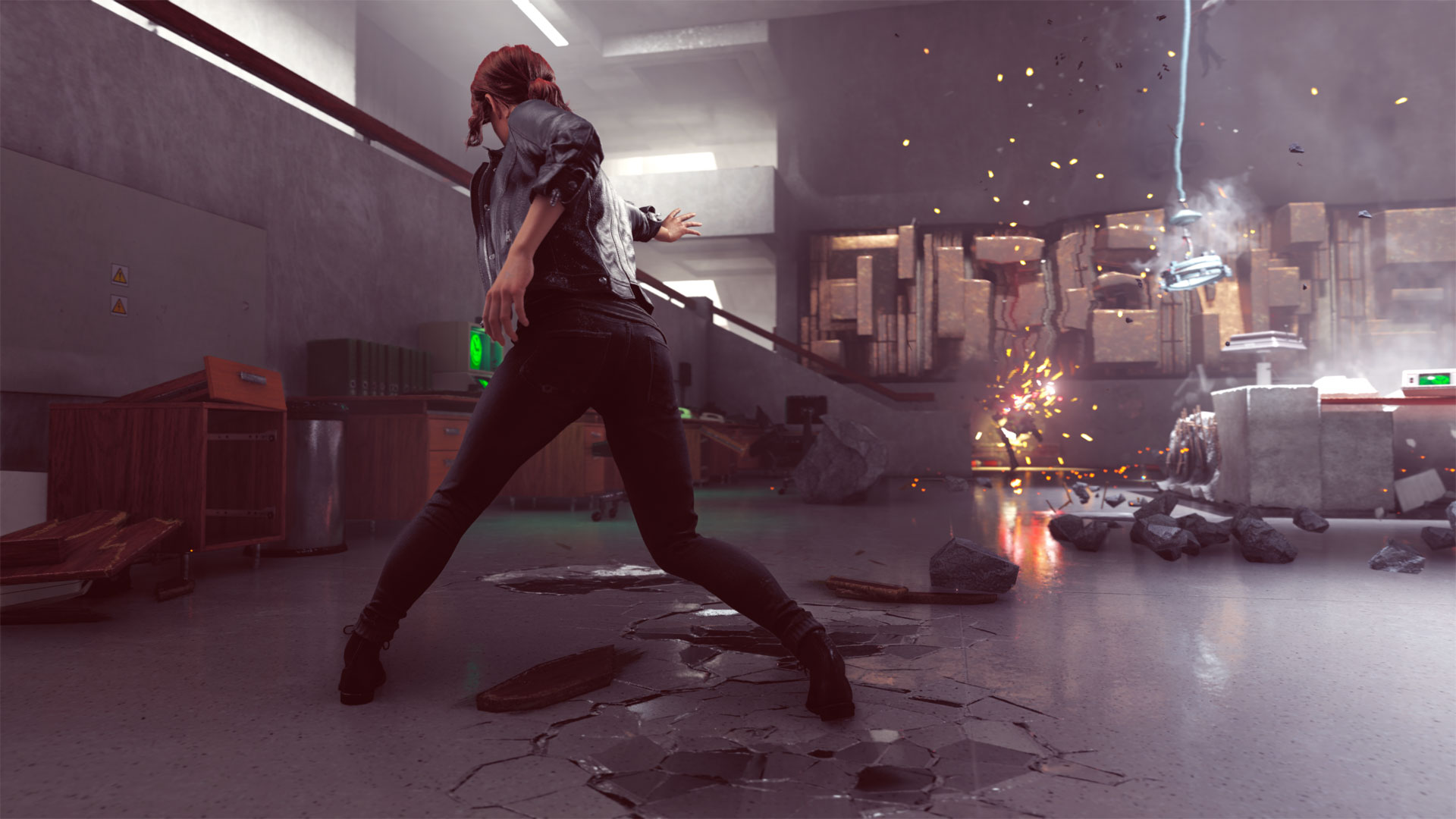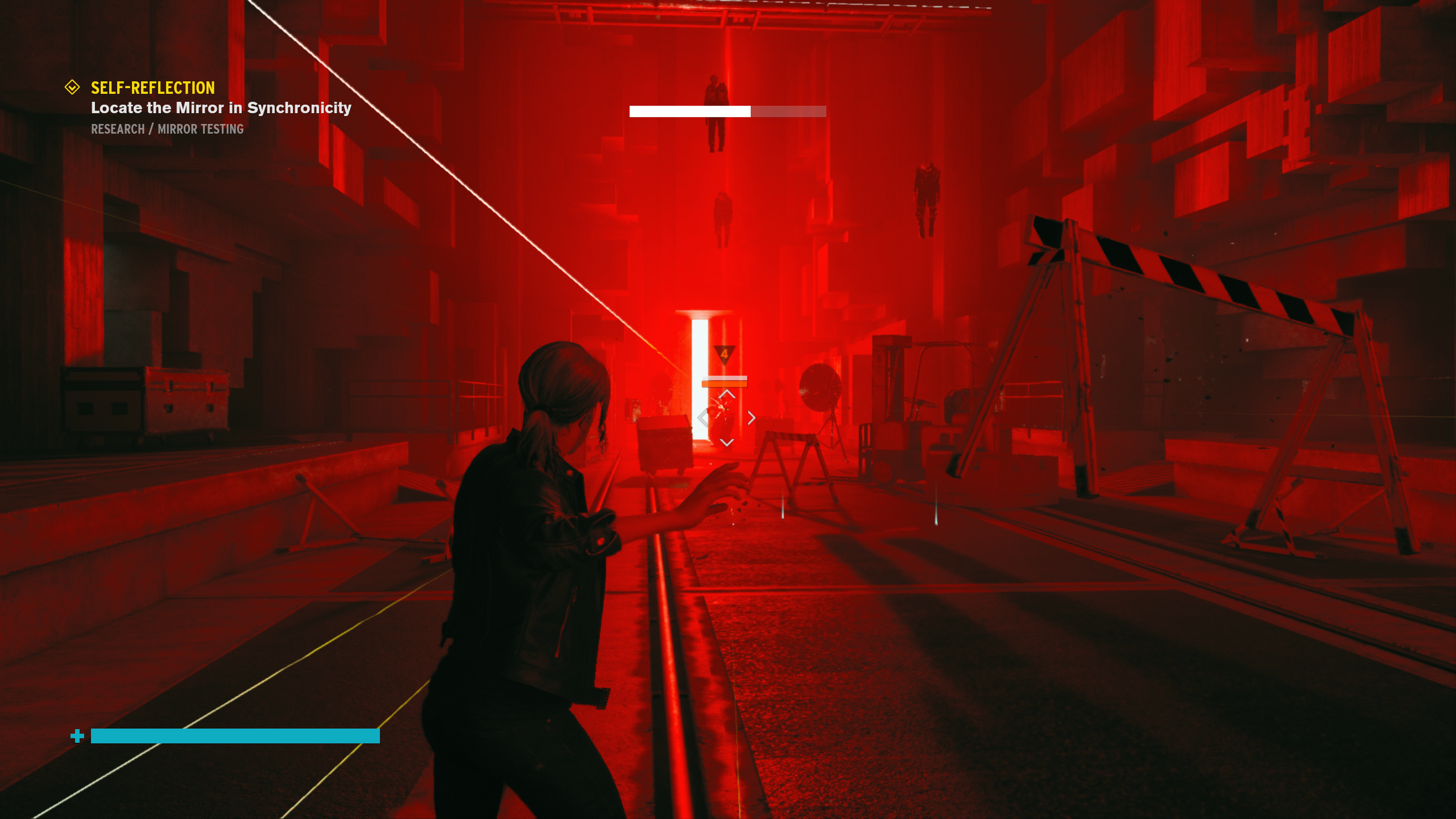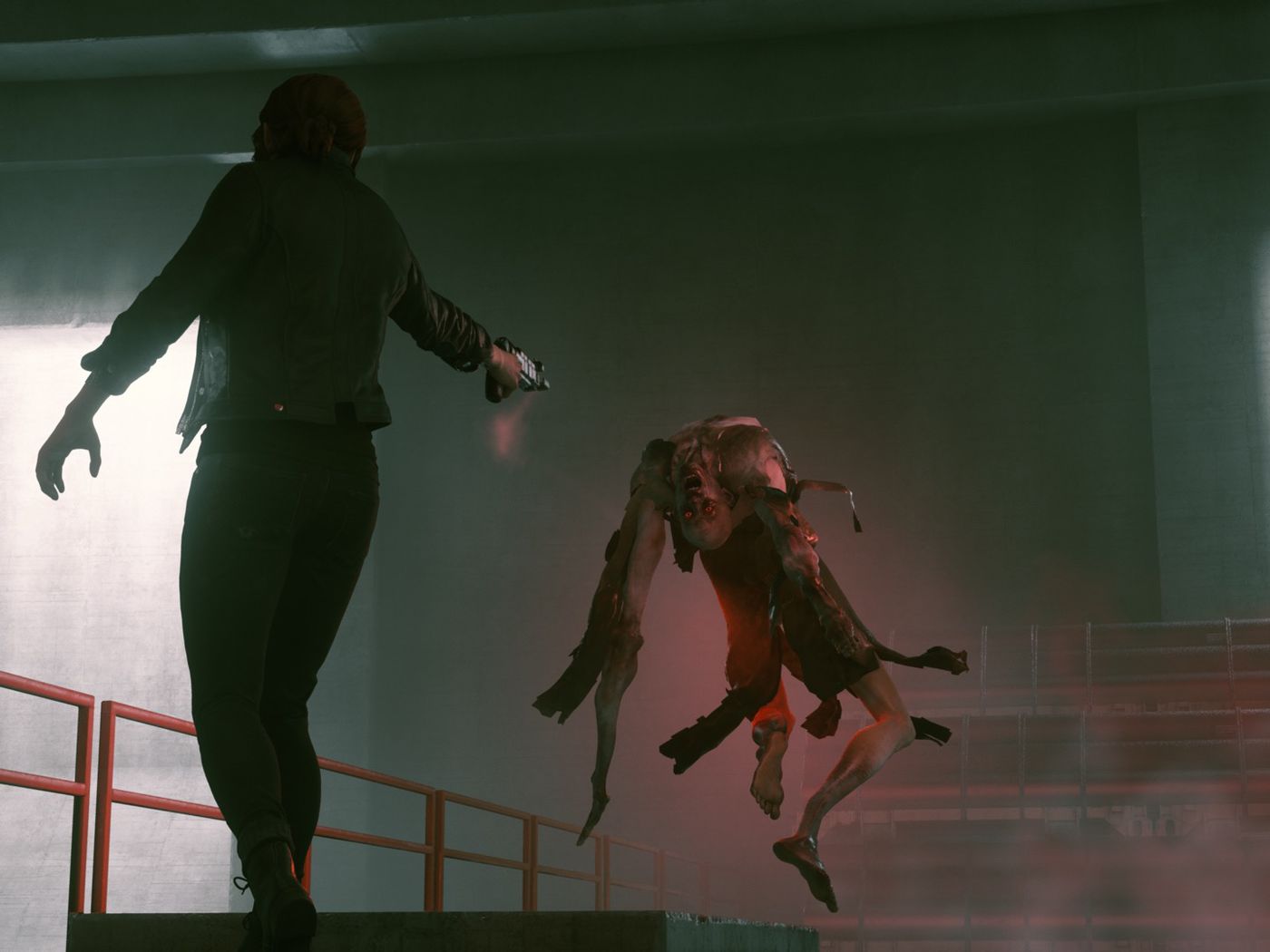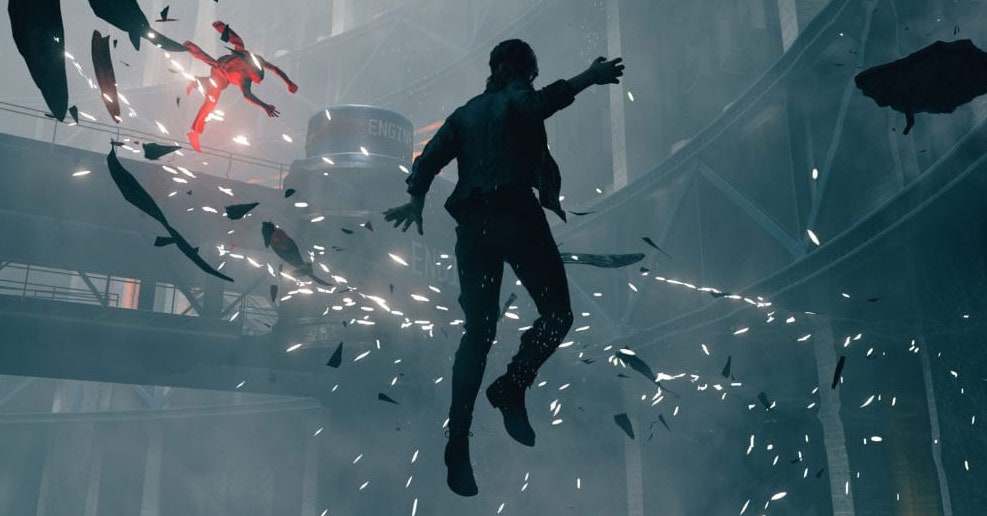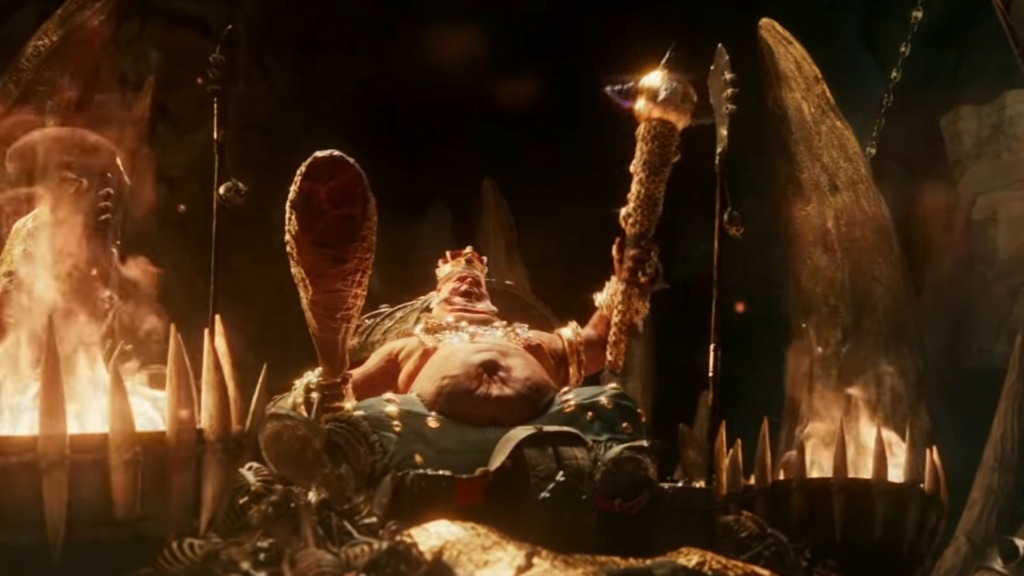‘Control’ Game Is So Close to Being Great
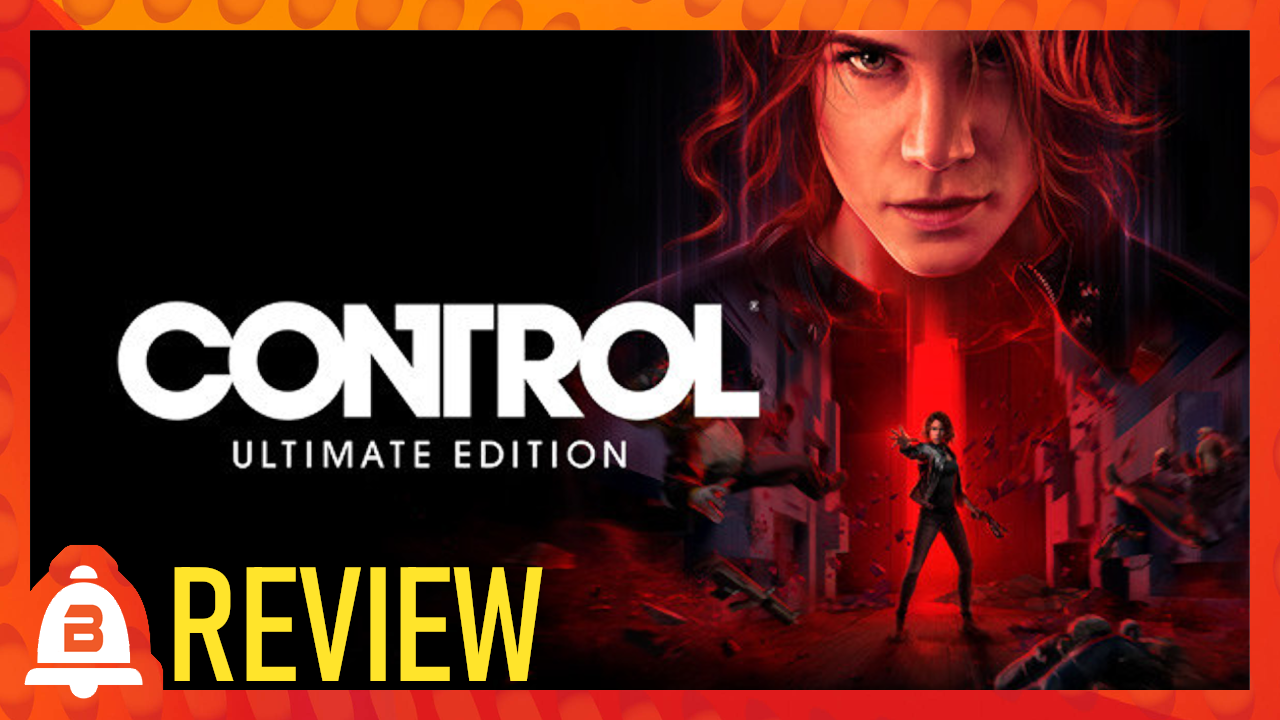
The game Control takes inspiration from so many different great classics, but does the game itself lack focus?
The game Control was one of those games I had heard things about here and there. They were all generally very positive reviews but I never really took the time to sit down and play it. And boy am I glad I finally did.
But if the game came out in 2019, why talk about it now? Throughout the month of November, Control is free on Amazon Prime Games.
Maybe you’ve also been thinking about playing the game Control, or if this is the first you’ve heard of it. But take this as your sign to pick it up.
Heads up, there will be some spoilers for the game’s plot ahead.
Overview
After some basic tutorial stuff, Control sets itself up as a pretty typical over-the-shoulder shooter game. The main character, Jesse Faden, is scheming her way into this mysterious government agency.
Along the way you get a cool gun, which becomes very useful in taking down swarms of zombie analogs. But the Control game goes off the rails pretty quickly– and in the best possible way.
You start to learn more about the nature of Federal Bureau of Control (or the FBC) and the extradimentional, paranormal things they’ve been working with.
The interior space of the building seems off from the beginning. But as you progress deeper into the building, reality breaks completely. You have to fight off the Hiss in order to seize control of the area and return it to a stable state.
All of this would be interesting enough, but Jesse learns about the main job of the FBC: controlling what they call Objects of Power. These objects were at the center of some huge paranormal event and have absorbed some of that essence, granting the object itself unusual powers.
As Jesse acquires these objects she gains these new powers, like telekinesis, speed burst, mind control, levitation and others. Each time you level up and also from various side missions (of which there are plenty) you gain points to spend towards upgrading yourself and your powers.
And since each power has its own upgrade tree, you can focus on the power you like best. During my playthrough, I went mostly telekinesis and shotgun. So I put all my points into improving the damage of my telekinesis and my energy consumption.
But there are plenty of other options. Some of which are completely optional.
Game Design
‘Metroidvania’ is one of those terms that gets thrown around so much to where its exact meaning becomes a little muddled. But to me, Metroidvanias are games which encourage exploration through progression, and not through curiosity.
Open world games like Skyrim or Breath of the Wild encourage the player to explore in order to find out what is over the next hill. The game Control is definitely a Metroidvania because exploration is encouraged by a player’s desire to move forward.
Throughout the game, Jesse runs into obstacles she can’t bypass, so she has to backtrack to find some new ability. Then she has to return to the obstacle and use the new ability to get through it. That’s the bread and butter of a Metroidvania!
But Control throws in more than it needs to. There are several optional powers Jesse can acquire throughout the game.
But without a helpful fairy to guide the way, the player has to note an opportunity to explore, like an impossibly high ledge. Then they have to make a mental note to return there later, once they’ve gained levitation powers.
The Good
In the Control game, controls are tight and responsive. I never felt like a death was due to lack of dexterity to input what I needed to in the moment, at least on the mouse and keyboard.
No, my deaths were always a result of getting too overeager and running into a room full of Hiss without a plan.
The powers you can gain in the game Control are all useful. They lend themselves to different playstyles and tactics. Having options on how to play is always a good thing.
Games like Bioshock have certainly laid the groundwork for a game with guns and spell-like abilities. But Control does a really great job of making these abilities flow together so well.
It’s seamless to use telekinesis to fling one enemy into another, then finish them both off with a shot to the head. Nailing these finishing moves just feels so satisfying, even without any sort of combo bonus. And as you unlock and upgrade with more guns and powers, it gets even better.
The Bad
Yes, Control is a Metroidvania. But it doesn’t lean into those roots enough.
Many of the story progression moments are just blocked off via security key card. I would have loved to have seen more obstacles like that being overcome by Jesse’s acquired powers.
At any opportunity, players want to solve puzzles and use their powers. But all we get to do is throw a block at the node puzzles.
I would have loved to have seen more progression through gained powers. Also, I’m never a fan of a fast-travel system. I would have preferred additional short cuts that also utilized the powers gained.
Overall
Control is a really solid game overall. Maybe it doesn’t lean into the Metroidvania gameplay mechanics and style as hard as I would have liked. But I can’t blame that game for not living up to my expectations of it.
Even without any of those mechanics, Control offers engaging gameplay, exciting combat, and an intriguing story. It’ll have the player constantly questioning everything.
What do you think of Control? Do you consider it a Metroidvania?

